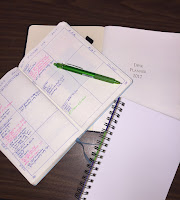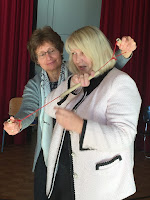The Best Year Yet analysis comes from a book I read back in 1994 by Jinny S. Ditzler:
This book sets out 10 important questions, and the answers will help to shape and guide you as you plan for your next fabulous year of accomplishments. As you consider and answer the ten questions, you will celebrate your accomplishments, consider your disappointments, identify honestly the way in which you limit yourself, explore your personal values, determine which roles you wish to include in your life, and create a new empowering paradigm to achieve your goals for the year for each of the roles.
This is a very thorough process and is not an activity that I do quickly. I begin in early December by pulling the book off my shelf and skimming the parts of the book that I have outlined over the years. Sometimes I read parts of the book again, because I find that each year I discover new things within the book that appeal to me in different ways. This year is no different.
If you turn to the goal setting process at this time of year, as many of us do, and you seek a different perspective from the goal-setting hype and noise that shows up daily in our email inboxes, consider exploring Jinny Ditzler's 10 Questions. I am certain that you will discover some very surprising things about yourself in the process.
I have written about this subject in previous years. If you would like to review those articles for more inspiration, here are some links to help you get started:
Your Best Year Yet!: This is an updated article about the BYY program and the 10 questions.
Just Desserts!: This updated article focuses on the first question, which looks at what we accomplished during the year. This is a step that many people ignore or forget, and yet the answer to this question may provide the necessary power to fuel goals for the next year.
Disappointments and Life Lessons: This updated article focuses on questions 2 (disappointments) and 3 (what did I learn).
Limits and Complaints: This updated article focuses on question 4 and any beliefs that may be limiting goals progress.
Happy Practicing!
----- Paula -----
© 2016 by Paula E. Bird
The above book link is an affiliate link (Amazon), which means that I may receive a small benefit at no additional cost to you. As always, you never need purchase anything, but if you are in the market to do so, consider using the provided affiliate links in order to support the time and efforts of writing and producing the Teach Suzuki blog and podcast.
The above book link is an affiliate link (Amazon), which means that I may receive a small benefit at no additional cost to you. As always, you never need purchase anything, but if you are in the market to do so, consider using the provided affiliate links in order to support the time and efforts of writing and producing the Teach Suzuki blog and podcast.









